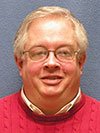Reflection / Sean Gallagher
Rookie Indianapolis 500 winner shows how ‘grace builds on nature’
 “I have no idea how we pulled that off.”
“I have no idea how we pulled that off.”
That was Alexander Rossi’s reaction to winning the 100th running of the Indianapolis 500 on May 29 as a rookie driving in only the second oval race of his short career.
On paper, he should have never won that historic race. Experienced drivers with stronger cars should have won—theoretically. But various circumstances took them out of the race, or put them out of contention.
Juan Pablo Montoya uncharacteristically lost control of his car and crashed in turn two, leaving him with a last-place finish after winning the race last year. Ryan Hunter-Reay and Townsend Bell, who both had fast cars all day, collided on a busy pit lane and ended up in the back of the field. Helio Castroneves, looking like a probable winner of what would have been his fourth Indy 500 victory, had his hopes dashed when J.R. Hildebrand collided with him on the track, damaging his back wing.
Finally, former winner Tony Kanaan and strong contenders Carlos Munoz and Josef Newgarden all had to pit for fuel with less than 10 laps to go.
That left Rossi with a large lead with three laps to go, but also in danger of running out of fuel. His pit crew, led by Bryan Herta, helped him squeeze literally every ounce of it out of his car. Munoz tried hard to catch up to him, but Rossi coasted across the yard of bricks as the winner.
The rookie may not have been able to explain how he won what Indianapolis Motor Speedway historian Donald Davidson said is arguably the most surprising finish in the race’s century-long history. But the circumstances of the race can illustrate for believers the mysterious interplay of divine providence and human freedom.
God either brings together by his will or at least allows the circumstances of our lives to bring us to where we are at in any particular moment. That place may have been far from God’s ideal plan for us. But he respects our freedom and can help us come back closer to him even after our worst choices, or after we’ve been caught up in difficult circumstances out of our control.
When we find ourselves closer to God in a better place later on, we might look back on the winding path that led there and make Alexander Rossi’s words our own: “I have no idea how we pulled that off.”
But our faith can lift the veil off of at least part of this mystery when we reflect upon it in light of St. Thomas Aquinas’ proverb that “grace builds on nature.”
The unforeseeable circumstances of the 100th running of the Indianapolis 500 put favored drivers either out of the race or at the back of the field, and gave Alexander Rossi a chance to drink the winner’s milk, even though no Indy Car expert foresaw his victory before the green flag fell.
That, in a sense, was a providential grace, an unmerited gift that Rossi did not create for himself and did not deserve. But once it was put before him, he had to use his freedom—which is at the heart of human nature—in order to take advantage of it and claim victory. He and his team had to use every trick they could think of to get his car across the finish line first. And they did.
God’s grace is there for us every day to help us to the ultimate human victory: eternal life with God in heaven. Use your freedom to accept this greatest of gifts.
(Sean Gallagher is a reporter for The Criterion.) †
 “I have no idea how we pulled that off.”
“I have no idea how we pulled that off.”